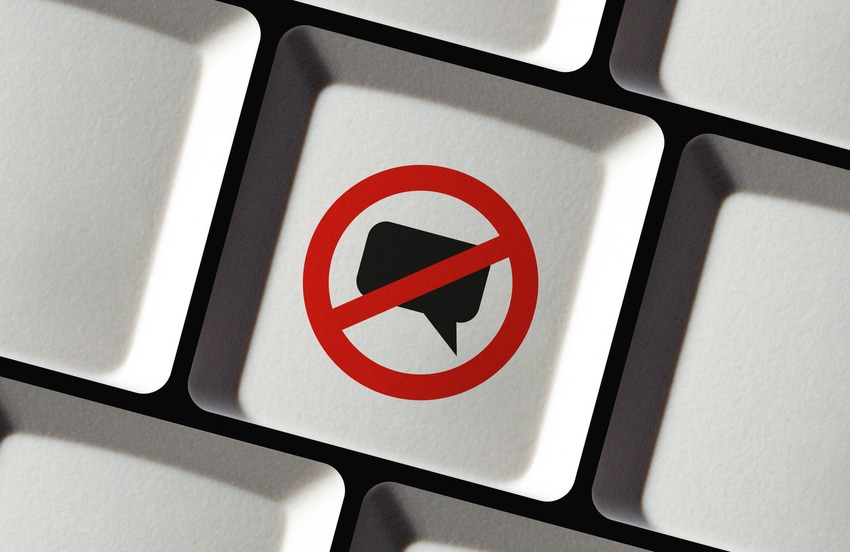Ireland poised to set a raft of draconian digital censorship precedents
A bid to legally muzzle critics of the Irish Data Protection Commission (DPC) is just the tip of the iceberg in this increasingly authoritarian country.
June 27, 2023

A bid to legally muzzle critics of the Irish Data Protection Commission (DPC) is just the tip of the iceberg in this increasingly authoritarian country.
The Irish Council for Civil Liberties (ICCL) has called for politicians to challenge an amendment to a law that would prohibit people revealing the details of their interactions with the DPC, when it comes up for debate tomorrow. The amendment seems to have been recently sneaked into a miscellaneous piece of legislation and includes the following passage.
…to make provision for enabling the Data Protection Commission to prohibit the disclosure of confidential information by persons engaging with it in connection with the performance of certain functions, to issue a reprimand to a controller or processor in certain circumstances…
The Irish DPC has powers that extend beyond the country’s borders. Since Ireland is the European home for many US Big Tech companies, it’s effectively the GDPR enforcer for the whole bloc when it comes to social media and the internet in general. This amendment appears to be designed to censor anyone making a GDPR complaint against such companies.
“Justice should be done in public,” said Dr Johnny Ryan, Senior Fellow with ICCL. “The DPC should be holding public GDPR hearings, as the Supreme Court’s Zalewski Decision makes clear. Instead, the government is attempting to make DPC decision making even more opaque. The DPC is already exempted from freedom of information rules that could have aided in its reform.
“Ireland’s enforcement of the GDPR against Big Tech, and how it upholds the data rights of everyone in Europe, should not be the subject of eleventh-hour amendments inserted during the end-of-term legislative rush. We ask the Government why it wants to do this and why has it attempted to do so in a last-minute amendment that evades proper scrutiny?”
Good questions but don’t be fooled, as you might also be by its name, into thinking the ICCL is a champion of free speech in general. Its position on the far more consequential Criminal Justice (Incitement to Violence or Hatred and Hate Offences) Bill 2022, which seeks to criminalise a broad range of speech using the usual nebulous and subjective definitions of the term ‘hate’, indicates exactly the contrary.
“Hate crimes are message crimes; one act can make an entire community feel excluded and unsafe,” said ICCL Policy Officer Luna Lara Liboni back in March of this year. “These crimes don’t just affect individuals, they impact whole communities and weaken the fabric of society as a whole… We hope the Government understands the urgency of this legislation and that the Bill will be prioritised.”
It’s hard to know where to start unpicking that statement. Message crimes? Excluded and unsafe? The position of this supposed civil liberties organisation seems to be that anyone who makes anyone else feel excluded or unsafe should be criminalised. In practice this would only apply to ‘protected groups’, with only those not designated as such presumably being liable to prosecution and up to five years in prison. The following speech from an Irish MP would appear to represent the establishment position on the matter.
With these moves Ireland is seeking to raise the bar even further when it comes to state censorship. Presumably inspired by proposed legislation such as the UK Online Safety Bill, they seek to give the state total control over what can and can’t be said, mainly online as other speech is harder to monitor. As is usually the case, it uses claimed concern for various perceived victim groups as the moral justification for such draconian powers.
As the Irish MP was so keen to stress, the state often acts by curtailing civil liberties. But that’s why, surely, those powers should be applied minimally. Giving the state the ability to effectively censor on the fly, so long as it can claim to have identified ‘hate’ towards an ever-growing portfolio of protected groups, is to give it far too much power. Ireland’s further lurch towards authoritarianism will be a test of the EU’s stated concern to protect civil liberties.
Get the latest news straight to your inbox. Register for the Telecoms.com newsletter here.
About the Author(s)
You May Also Like











_1.jpg?width=300&auto=webp&quality=80&disable=upscale)


.png?width=800&auto=webp&quality=80&disable=upscale)